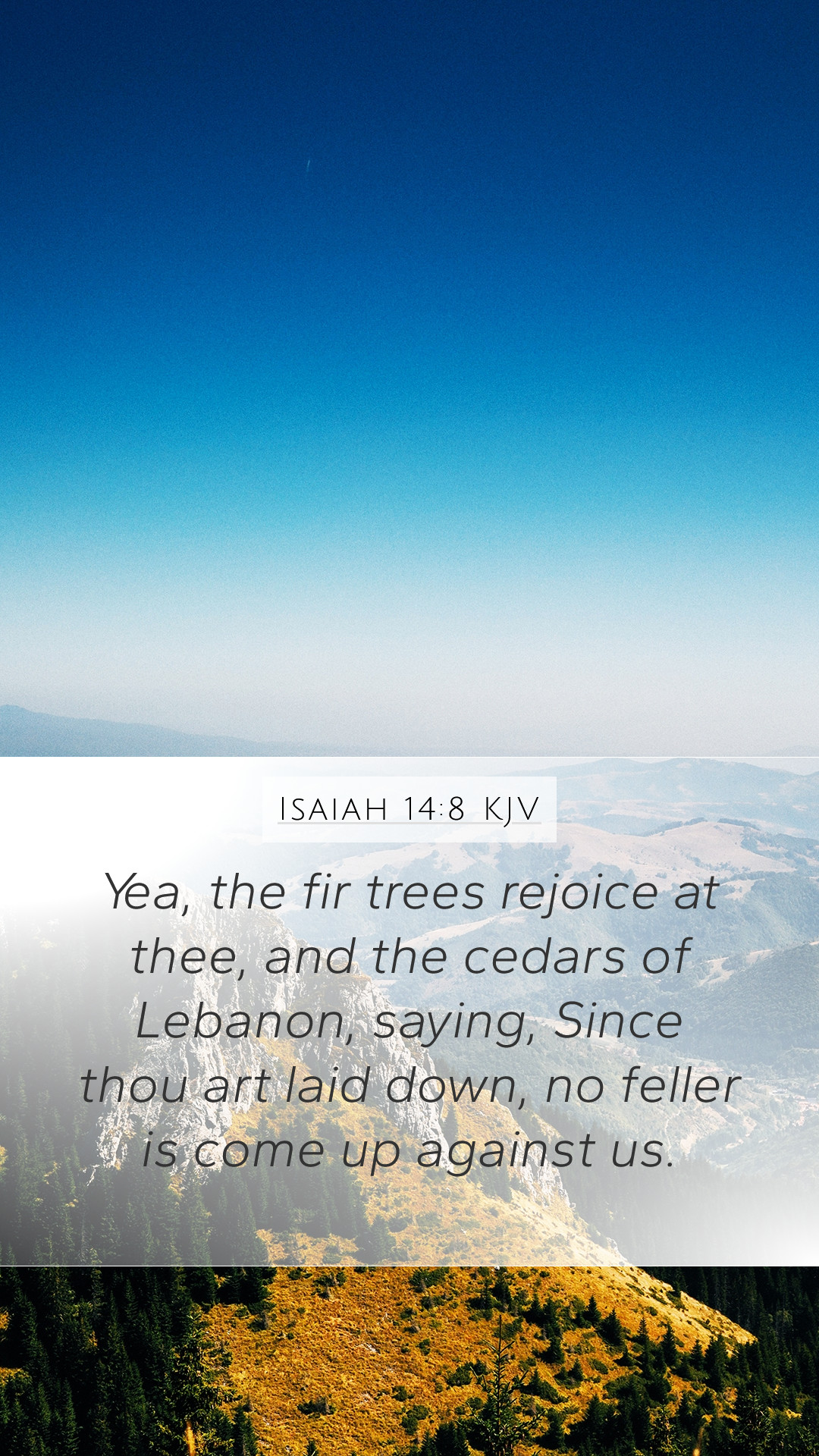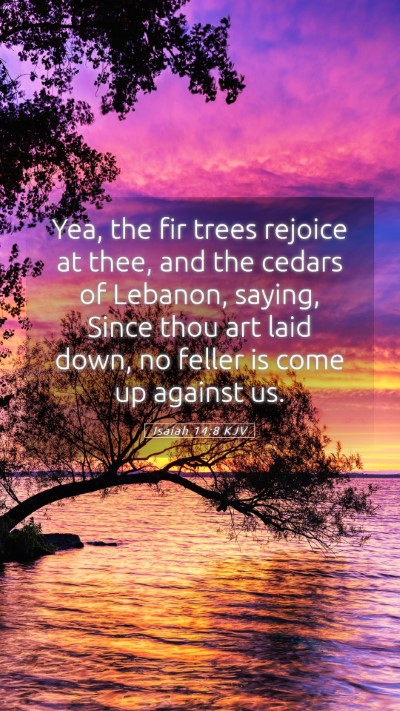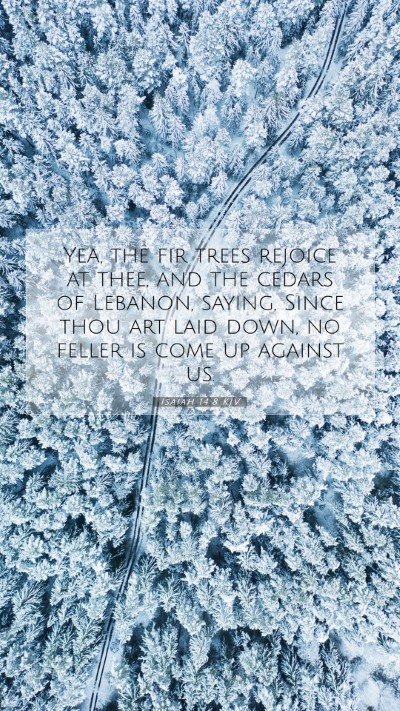Understanding Isaiah 14:8
Isaiah 14:8 states:
"Yea, the fir trees rejoice at thee, and the cedars of Lebanon, saying, 'Since thou art laid down, no feller is come up against us.'
This verse occurs within a passage that celebrates the downfall of the king of Babylon and reflects on the broader theme of the restoration of Israel. Below, we explore the meaning of this verse through insights from renowned public domain commentaries.
Bible Verse Meanings
In context, Isaiah 14 speaks of the judgment against Babylon and the consequent joy of nature depicted through trees. The fir trees and cedars are personified, expressing a sense of relief at the absence of oppressors.
Bible Verse Interpretations
- Matthew Henry: Matthew Henry highlights the irony of the trees signaling jubilation at the absence of destruction, which the oppressive Babylonian kings had brought upon both humanity and nature.
- Albert Barnes: Barnes notes that the trees symbolize strength and durability, representing those who are relieved from tyranny. He compares their joy to that of oppressed people finding deliverance.
- Adam Clarke: Clarke emphasizes the metaphorical language, recognizing it as indicating the peace that follows the downfall of oppressive rulers. The cedars of Lebanon, being known for their robustness, reflect the stability and prosperity expected during God’s kingdom.
Bible Verse Understanding
The joyful response of the trees can be interpreted as a metaphor for the world celebrating divine justice. The broader context reveals that God’s judgment brings about a positive restoration.
Bible Verse Explanations
Overall, Isaiah 14:8 can be seen as a powerful reminder of the consequences of pride and tyranny, and the hope of restoration that follows. The reference to the fir trees and cedars serves to emphasize that even the natural world is affected by human actions.
Symbolism in Nature
Nature, particularly trees, plays a significant role throughout Scripture, symbolizing a variety of themes including strength, resilience, and peace. In this verse:
- Fir Trees: Often associated with resilience, they symbolize the joy of survival after hardship.
- Cedars of Lebanon: Known for their grandeur and strength, they represent stability and majesty in the wake of oppression.
Scripture Analysis
Isaiah 14:8 is intricately connected to several themes, including:
- The fall of tyrants
- Divine justice and mercy
- The restoration of Israel and the natural order
Biblical Exegesis
Through exegesis, we learn that the passage reflects a prophetic certainty of restored order post-Babylonian oppression, underscoring how divine intervention transforms both humanity and creation.
Bible Study Insights
When studying Isaiah 14:8, consider how it applies in various contexts and how it aligns with other biblical themes of justice and restoration:
Cross References
- Revelation 18:2: The fall of Babylon as a symbol of God’s judgment.
- Isaiah 42:13-14: God’s promise to deliver and liberate His people.
- Psalms 96:11-13: The joy of creation at God's reign.
Applying Bible Verses to Daily Life
This verse serves as a reminder of the assurance we have in God’s sovereignty. The themes of hope and restoration are prevalent throughout the Bible and can encourage believers to trust in God’s plan despite the chaos around them.
Conclusion
Isaiah 14:8 encapsulates profound meanings and implications that extend beyond its immediate context. Through understanding Scripture, believers can draw comfort and encouragement from the truths found within this verse. It unearths the idea that divine retribution brings about a joyous restoration, not just for humanity but for all of creation.


